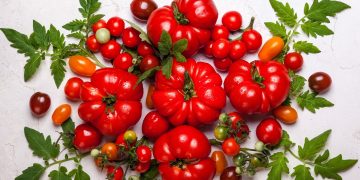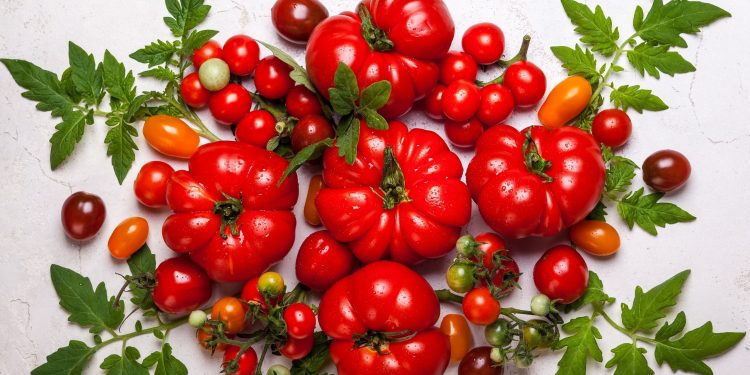#tomatocultivation #biopreparations #biologicalfungicides #plantprotection #PrimorskyKrai #agriculture #diseasecontrol
Primorsky Krai faces challenges in achieving high and stable yields of vegetables due to the presence of a high infectious background. Two major diseases, Phytophthora infestans (Mont.) de Bary and Alternaria solani Sorauer, cause serious damage to tomato crops in the region’s monsoon climate. The main solution to combat these diseases has been chemical fungicides, but their effectiveness decreases with repeated use due to the emergence of resistant strains of pathogens. The priority in recent years has been the development and use of biological fungicides, which, when integrated into a plant protection system, significantly reduce pesticide load.
The study was conducted at the Primorsky Vegetable Experimental Station (POOS), a branch of the Federal Scientific Center of Vegetable Growing, in the conditions of the coastal zone’s monsoon climate. The research examined the effects of experimental biopreparations Tridem (biofungicide) and BIS (biostimulator, immunomodulator), developed by the Federal Scientific Center of Vegetable Growing, and organomineral fertilizer GROHUS on disease development, yield indicators, and tomato crop structure of the Phytilek variety. The cultivation techniques used were standard for tomato cultivation in Primorsky Krai.
The experimental biopreparations based on consortia of live microbial cultures – MBK Tridem (species of the genus Trichoderma) and MBK BIS (bacteria of the genera Pseudomonas, Rhodococcus, and yeast of the genus Rhodotorul) – showed promising results in reducing diseases during the cultivation of Phytilek tomatoes. They suppressed the development of Alternaria below the level of harmfulness, and had an immunomodulating and stimulating effect on plants, leading to an increase in the weight of the commercial fruit and early tomato harvest in open ground conditions in Primorsky Krai.
In conclusion, the use of biopreparations such as Tridem and BIS can significantly reduce the pesticide load and effectively fight tomato diseases in Primorsky Krai’s monsoon climate. Their integration into a plant protection system can help achieve stable and high yields of vegetables.































